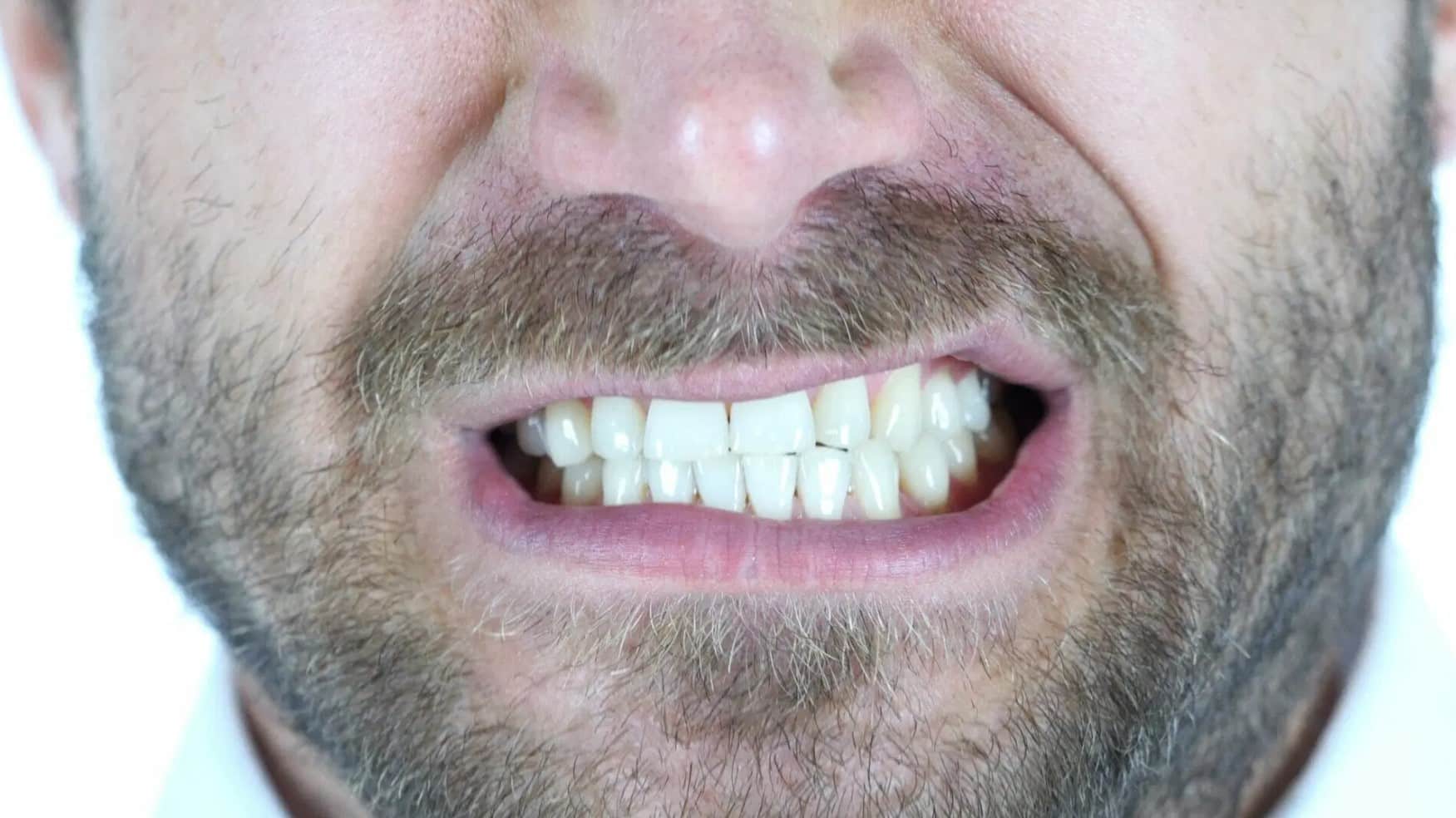Have you ever woken up with a sore jaw, a dull headache, or tooth sensitivity without understanding why? These subtle symptoms might be your body’s way of revealing a common but often overlooked problem: teeth grinding. Known medically as bruxism, this condition can occur unconsciously, especially during sleep, and can have far-reaching effects on your dental health and overall well-being.
If you’re tired of the discomfort and ready to take control, understanding the root causes of teeth grinding is the first step. This article highlights the triggers behind bruxism, its potential consequences, and the practical solutions to help you protect your smile.
What is Teeth Grinding?
Teeth grinding is a condition in which you subconsciously clench or grind your teeth, often during sleep or periods of heightened stress. Though it may seem like a minor issue, bruxism can lead to serious dental and jaw problems over time.
The signs of teeth grinding can be subtle at first but may grow more noticeable with time. People with bruxism often wake up with a sore jaw or a dull headache. Some also experience tooth sensitivity, especially when eating hot or cold foods. Other signs include pain in the face or ears, as well as a grinding sound at night, which a sleeping partner may hear. If left untreated, bruxism can cause more severe damage, such as worn-down teeth, cracked enamel, and even jaw misalignment, which can lead to additional discomfort.
The Most Common Causes of Teeth Grinding
Bruxism is a common condition that often stems from a variety of physical, psychological, and lifestyle-related causes. Here’s a detailed look at some of the hidden triggers behind this habit:
Stress and Anxiety
One of the leading causes of bruxism is stress. When we experience emotional or mental stress, whether from a job, personal concerns, or life events, our bodies respond in various ways. Many people experience tension through teeth grinding or jaw clenching, particularly during sleeping. These unconscious behaviors develop due to stress-induced muscular stiffness, especially jaw muscles.
During stressful times, the body’s fight-or-flight response activates, leading to increased muscle tension. While some people may experience physical tension elsewhere (like in their shoulders or neck), others may grind their teeth or clench their jaws.
Managing stress through relaxation techniques like meditation, deep breathing, exercise, or counseling can significantly reduce the incidence of teeth grinding. Regularly unwinding before bed with calming activities can also help ease the tension that triggers bruxism.
Sleep Disorders
Sleep disorders are closely linked to teeth grinding. Conditions like obstructive sleep apnea or OSA, where breathing is interrupted during sleep, are often associated with bruxism. The grinding or clenching may be the body’s way of reacting to these interruptions in breathing or trying to reopen the airway. These disorders can result in fragmented and low-quality sleep cycles. This lack of restorative sleep may lead to muscle tension in the jaw as the body tries to find a way to cope.
If you believe you have sleep apnea or another sleep issue, medical treatments like CPAP (Continuous Positive Airway Pressure) therapy or lifestyle adjustments can help you sleep better and lessen grinding.
Lifestyle Factors
Certain lifestyle choices and habits can contribute to or exacerbate bruxism. These factors can impact the muscles involved in chewing or influence the nervous system in ways that make grinding more likely.
Caffeine: Excessive caffeine consumption, especially later in the day, can cause increased alertness and restlessness at night. This overstimulation may increase the chance of teeth grinding since your body remains in a condition of high stress.
Alcohol and Nicotine: These two impair sleep. They are considered stimulants that might cause your jaw muscles to grind more often. Alcohol, in particular, can disrupt sleep cycles and lower the quality of sleep, exacerbating bruxism.
Chewing Habits: Non-food chewing habits, like chewing gum, ice, or even pens, can condition the jaw to stay in a constant state of motion. This repetitive motion can encourage the muscles to remain tense, leading to nighttime grinding.
Reducing caffeine, alcohol, and nicotine intake – especially before bed – can help alleviate teeth grinding. Additionally, breaking the habit of chewing non-food objects can reduce the strain on the jaw muscles.
Dental Issues
Misalignment of the teeth or poor bite alignment can cause the jaw muscles to work harder, resulting in bruxism. When the teeth do not connect properly, it can result in an uneven bite, putting pressure on certain parts of the jaw. This extra effort to straighten the teeth may result in clenching or grinding.
Seeing a dentist for a full review of your bite alignment is critical. Braces, retainers, and other bite-correcting dental treatments can significantly reduce bruxism and prevent future damage to the teeth and jaw.
Other Contributing Factors
Bruxism can be a side effect of several drugs, especially those that influence the neurological system, such as stimulants or antidepressants. Because the disorder may be inherited, having a family history may also make one more susceptible to getting it.
Bruxism is more frequent in children, but it can affect adults of any age. It usually resolves as kids become older, although it might remain or worsen in adulthood.
Conclusion: Taking Action Against Teeth Grinding
Teeth grinding is more than just an inconvenient habit; it can have lasting effects on your oral health and overall well-being. Understanding the underlying causes, whether they are stress, sleep difficulties, lifestyle factors, or dental concerns, is critical for taking the necessary measures toward relief.
If you suspect bruxism, see a doctor or dentist for a personalized treatment plan. By tackling the causes head-on, you can ensure a healthier, more comfortable smile for years to come.
Comments are closed.

